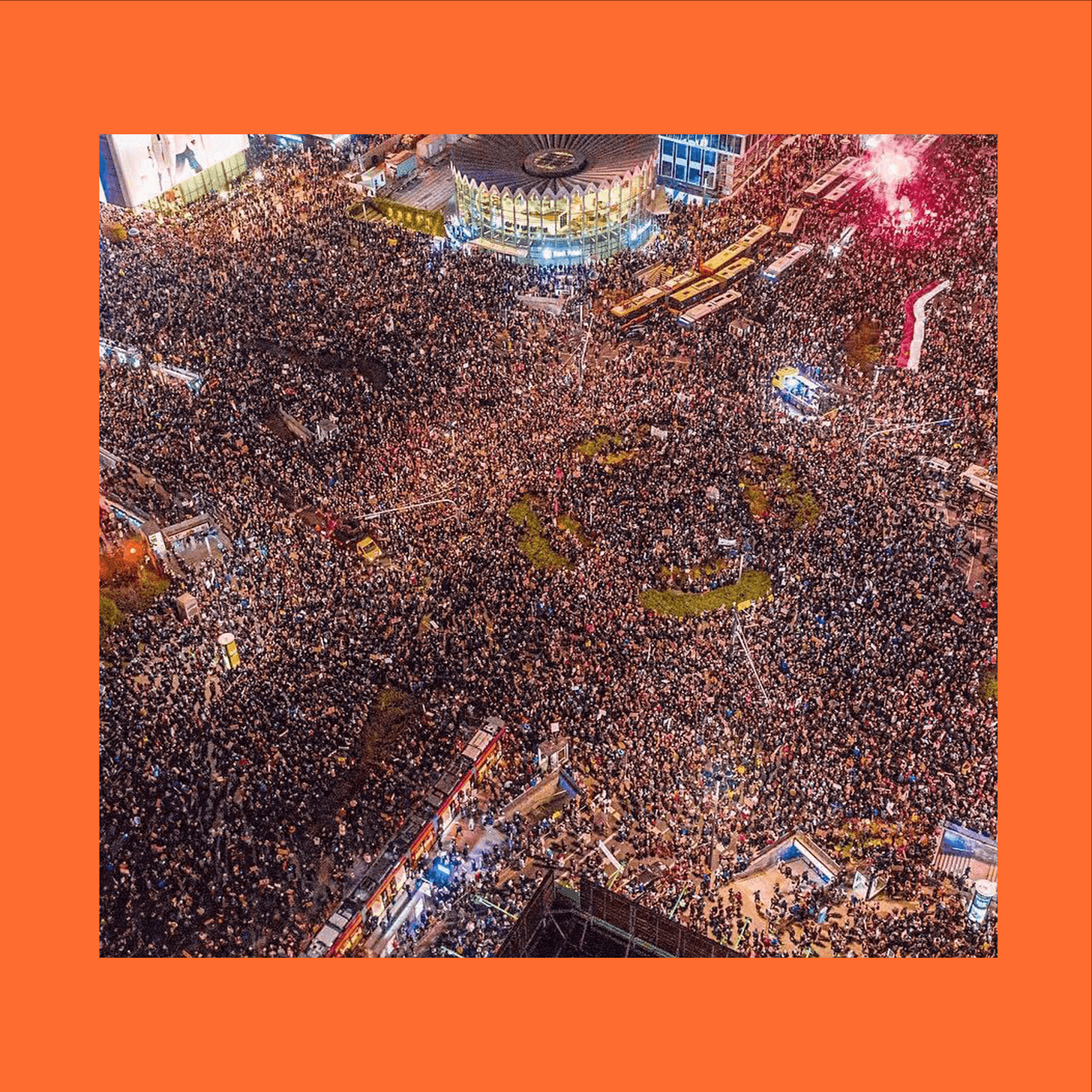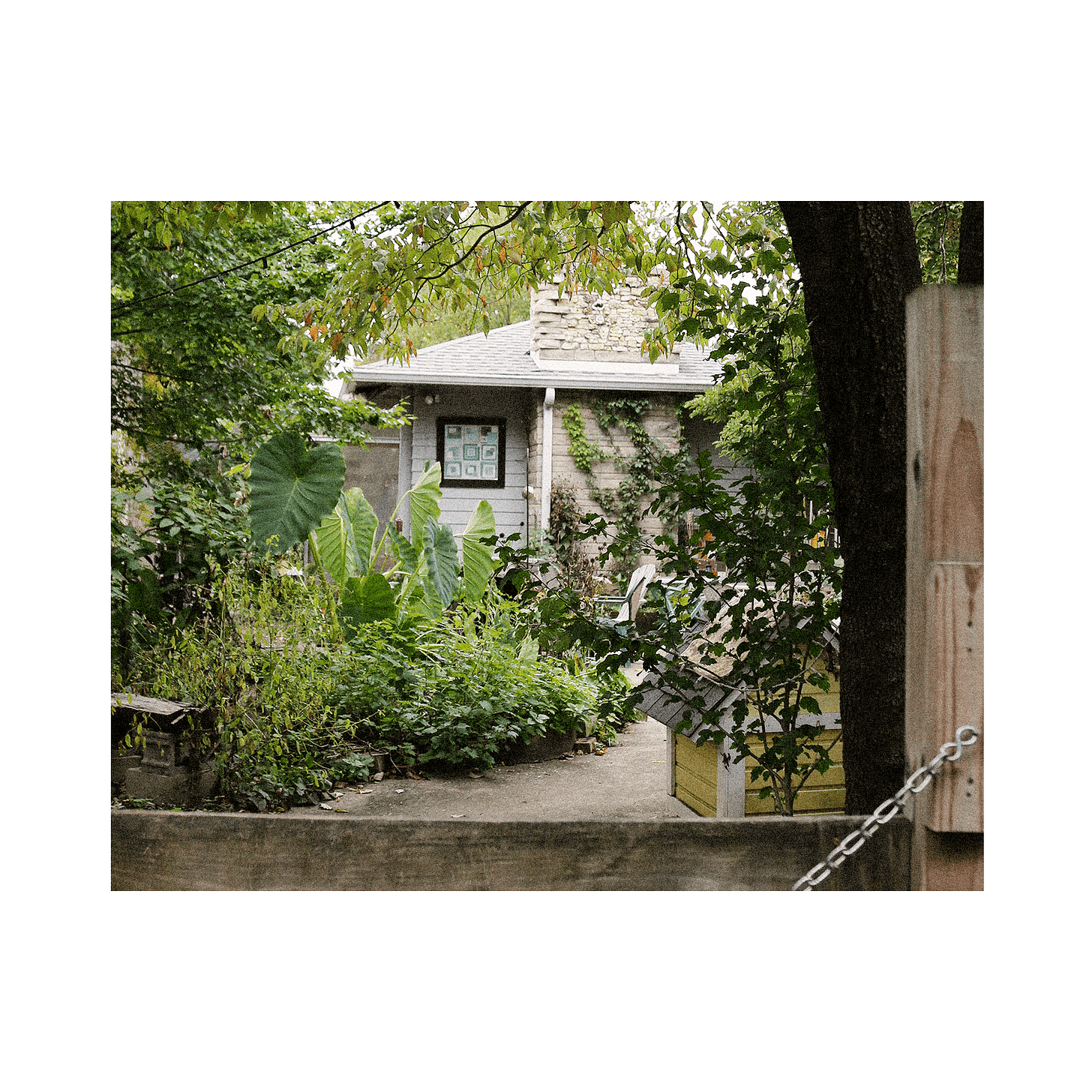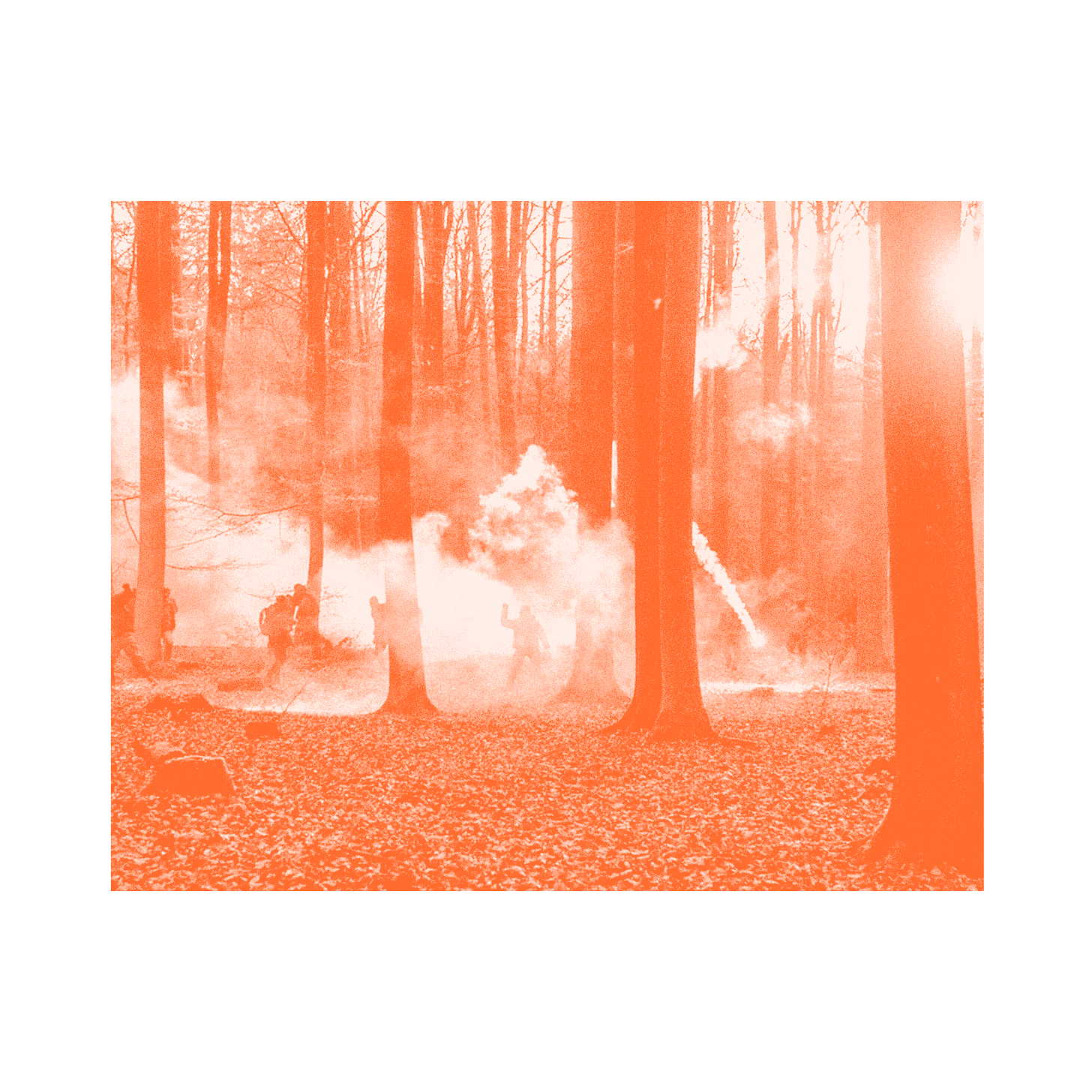Welcome to the December issue of Territories, the monthly newsletter from Inhabit. To close out our first year, we’ve got 2 brand new articles for you.
Both take up the question: how do we remake life in the ruins they have given us?
Retrofitting Community
Remaking life in the Midwest suburbs
We want a different life. This simple fact can get buried under the confusion of current events, a plethora of takes, or just the latest drama. So how do we create new ways of life in these times—communal, dignified, and enduring? In this interview, we speak with Ann Kreilkamp about an experiment two decades in the making, an ever-evolving answer to the question of what truly sustains us. Reclaiming ranch houses and cultivating front yards, blurring property lines and breaking with an architecture of separation, the Green Acres Permaculture Village is an imaginative, collective re-inhabiting of the formerly private. With an accompanying photo essay by Mia Beach, we begin to see how life can already be otherwise, even in unlikely places.
Recognizing the value of viewing this experiment as a new “retrofit” template for how to live in the suburbs, via re-imagining both people and place, we began to host weekly dinners for neighbors and friends far and wide, as a way of sharing the bounty of our own social and spiritual practice of growing community from the ground up. Thanks to the collective soul-searching brought on by lockdown, we hear more and more from neighbors and others who walk by the recognition that our way of living and being in community with each other and the land is the way of the future.
Worlds Belong to Us
A dispatch from Brazil on “life illuminated by green”
We received the following short text from some mysterious mountain comrades in the Brazilian countryside. Translated by a friend, we republish the letter in full below. Click through for the original Portuguese and more photographs.
There are so many words around when we stop to hear what's happening on the planet, the noises are manifold.
Too many concepts, discourses, and narratives incapable of sprouting a mustard seed.
Too many groups, factions, rivalries, egos, and vices, all fighting over a "like" on this limp planet. A dead-end street!
Crisis is the daily reality imposed upon folks.
Far from the lights of this crumbling civilization whose death we witness, we find green worlds, invisible zones where it is possible to grow other modes of existence, to escape, to become ungovernable, to live beyond the radar of all rotten powers.
Free zones, territories without mediations, from capital, bosses, or leaders that decide what we must eat, what we must think, how we should live our lives.
Root worlds, of plants and mutual aid, of joyful friendships, of seeds that grow out of collapse, of before, of those who are still coming.
In these territories we resist, we reap what we may, we build tools out of the ruins of a world disappearing in its own toxic smoke.
In these worlds we plant what the earth nurtures, we learn from the old and we appropriate what was good about civilization. We care for one another, we embrace those who need or those who are merely passing by.
When the sun rises, those who will another life have a thousand tasks: to plant food, to sow rain and trees, to care for flowers and bees, to let the wilderness bloom for that is its nature. We watch the sunset, or merely dance within inviting nights, we hug friends and neighbors, the only strange thing is the memory of a world left behind.
There are continents to be discovered by those who wish to embrace a life illuminated by green. The garden, the grain and the free water, growing herbs for seasoning and other fragrances. There are no alternatives, we are Plan B, with our dreams pregnant with will, colors, and affects we can make this world ours, free!
From some territory inhabited by free people.
Monthly Reading
“It is no longer a question of repossessing or taking hold of a tattered society in an external fashion, but of repairing souls in the very act of repairing the world.” The Invisible Committee on the sensuous conspiracy of revolt.
“We must be fully engaged in protecting our lives, ousting the capitalist-nation-state, and creating a new existential reality for our survival and happiness.” Sabu Kohso on radiation, pandemic, and revolution.
“Strategic fluidity is meant to shake the police’s confidence, to deprive them of the ability to dictate the rules of play.” Irruptions on recent protests in Omaha.
“We are witnessing the production of revolutionaries without revolution, as millions descend onto the streets and are transformed by their collective outpouring of rage and disgust, but without (yet) any coherent notion of transcending capitalism.” Endnotes on the historical dynamics of our era.
“To return to the body is also to come back to earth, understood not as a land, but as an event that fundamentally defies the boundaries of states.” Achille Mbembe on artificial animism.
“The entirety of the Earth is technic-ly mediated into a kind of spectacular consumer nightmare that will probably kill us all.” McKenzie Wark on technics, theory, and teaching.
“We find ourselves in a dangerous and unstable informational environment, powerless to resist forces of manipulation and exploitation that we know are exerted on us but remain mostly invisible.” Adrienne LaFrance on the terribleness of Facebook.
“Abolishing Silicon Valley means freeing the development of technology from a system that will always relegate it to a subordinate role: that of entrenching existing power relations.” Camille Baker on Wendy Liu’s rebuke of tech elites.
“Our lives rest precariously on systems that have become so complex, and we have yielded so much of it to technologies and autonomous actors that no one totally comprehends it all.” Tim Maughan on the complex systems underpinning the modern world.
“Our perseverance lies in recognizing our reliance on the Earth system, not our dominance of it.” Summer Praetorius on the idea of the Heliocene.
“In a gift economy, wealth is understood as having enough to share, and the practice for dealing with abundance is to give it away.” Robin Wall Kimmerer on reimagining relationships and reciprocity.
"We proposed this idea as a way to conceptualize what it would mean to build a food system that wasn't based on industrial agriculture and all of its climate- and soil-destroying processes.” Carbondale Spring on building food autonomy (via the Partisan Gardens podcast).
What a ride it’s been. We’ll see you in 2021.
You’re on Path B,
Inhabit




